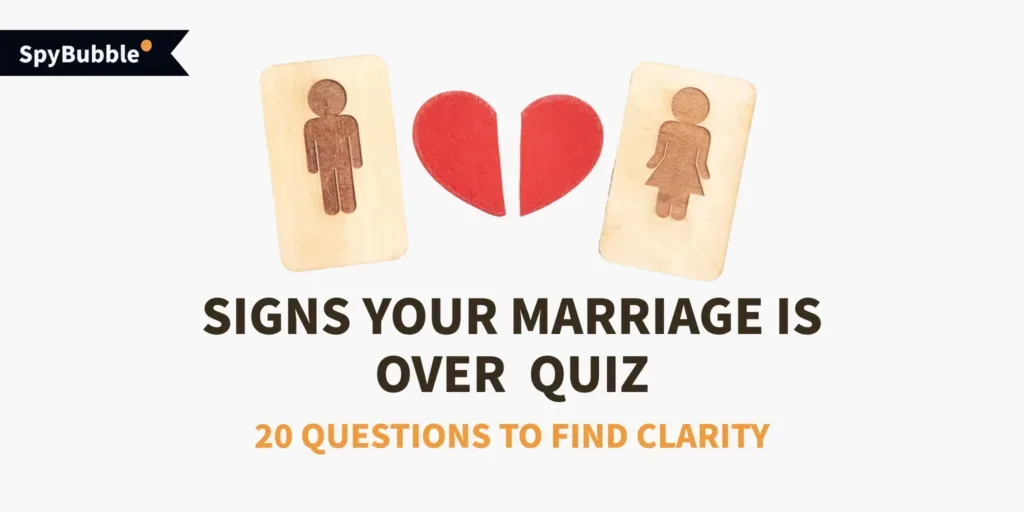We’ve all met someone who cares more about themselves than about others. Personality traits like a lack of empathy, sensitivity to criticism, an inability to provide support during tough times, chronic jealousy, feelings of superiority, and overestimation of one’s abilities are common signs of people with overt narcissism. However, there are those with a covert narcissist symptom, which, in comparison with overt narcissist behavior, does not outwardly display a sense of self-importance.
To better understand the difference between overt and covert narcissism, it is important to recognize the signs of personality disorders. Overt narcissism is easy to notice, while covert narcissism is more complicated to see because it’s more hidden. But just because it’s subtle doesn’t mean it’s any less impactful.
In this review, we’ll clarify the covert narcissist definition, outline the common signs of a narcissistic personality, as well as tell you how to deal with a covert narcissist if you meet the one in your life. So, let’s start.
What Is Narcissism?
While some level of narcissism is standard and can be healthy, especially for those people who want to reach personal goals without paying attention to what other people may think or say, a narcissistic personality disorder (NPD) is a mental health condition where these traits are extreme and significantly impair a person’s functioning and relationships.
A person with covert narcissist traits often believes they have considerable superiority when compared to others (even when it’s far from being the truth) and may use grandiosity, entitlement, and a tendency to exploit others for their gain.
Who Is a Covert Narcissist?
Well, what is a covert narcissist? A covert narcissist, also known as a vulnerable narcissist, is a person emotionally sensitive even to the smallest criticism of a person.
People with this personality disorder have an inflated sense of importance and a deep need for admiration. They seem really stressed and anxious and are usually quiet, shy, and hard on themselves. They are self-deprecating and often compare themselves to others, judging their happiness, belongings, and relationships. These people expect to obtain more from others, are constantly attention-seeking, and can even resent things others will not even consider.
What Are the Covert Narcissism Traits?
While several covert narcissistic traits are similar to those of overt narcissistic traits, they show up differently on the surface. When compared with overt narcissism, people with covert personality narcissism may be more emotionally open and vulnerable, wearing their heart on their sleeve. But don’t be fooled. Behind the scenes, they’re still calling the shots. Their actions are about feeding their ego, staying in control, and meeting their needs. No one, but only their comfort, is important to them.
What are the weird things covert narcissists do? What are the most common narcissism traits?
Here are a few for you to know about:
- Lack of empathy: While a covert narcissist may express empathy towards other people’s emotions, they find it difficult and only do so in perspective so that they serve their own needs in some way.
- Victim mentality: They often like to make themselves a victim in situations where they are not, portraying themselves as misunderstood or mistreated to gain sympathy or attention.
- Extreme need for admiration: They always need attention and can even make the other person feel sorry for them, even if the situation they tell others is untrue.
- Introvert behavior: Introvert behavior is a common way for a covert narcissist to hide their unprotected vulnerabilities and avoid judgment.
- Overestimated self-esteem: A covert narcissist might subtly hint that they feel superior to others instead of saying it outright. For example, they might roll their eyes rather than openly disagree with someone during a conversation.
- Fragile self-esteem: Although narcissist might seem humble, deep down, their self-esteem is delicate. So that minor criticism can hurt them.
- Self-absorbed narcissistic behaviors: Self-centeredness is another trait of a covert narcissist. Although many introverts are not only good listeners but also try to contribute to communication equally, those with high covert narcissism are often critical and poor listeners.
- Sad or depressed: As statistics show, most covert narcissists are people who have experienced childhood trauma, poor experience in past relationships, bullying at school, chronic depression and anxiety, etc.
What Are the Covert Narcissist Traits in a Relationship?
Since covert narcissism isn’t as evident as overt narcissism, you may not even recognize that you are in a relationship with a narcissist until it’s too late. So, how to detect a narcissistic personality? What are the covert narcissist traits in a relationship? Here are a few of the most common tactics covert narcissists can use when being in a relationship with someone:
- Gifts: Covert narcissist often buys presents not only to make you happy but also to surprise you, gain positive emotions from you, and draw you into emotional bonds. They frequently do it to buy your silence, allegiance, etc.
- Passive-aggressive tactics: Instead of openly dealing with problems, a covert narcissist might use passive-aggressive tactics (e.g., forgetting promises, giving insincere compliments, acting moody, etc.) to get what they want. So, instead of telling their partner what’s wrong, they play this game, aiming to control the situation indirectly, which can only make things confusing and hurtful for their SO.
- Refuse to hear: A covert narcissist will either not listen to you when you try to express your thoughts or worries or will do it only to misinterpret or condemn what you say. The result? You’ll feel yourself irritated and broken.
- Control your speaking: They may even control the words you use when speaking or your thoughts. So, instead of telling what you want to say, you’ll catch yourself telling what your partner has made you say.
- Lots of lies: When you are in a relationship with a covert narcissist, it would be tough to detect when they tell you the truth because they’re good at lying.
- Leaving things out: They might appear indifferent and distant in the relationship, ignoring your words and actions.
- Belittle you: Narcissistic people frequently use hurtful jokes to make you feel bad instead of telling you what’s wrong.
- Selfish movies: It’s a normal thing for a covert narcissist to use cover tactics to maintain power and leadership in their relationships.
- Sensitive to criticism: Even if you wish your partner the best and want to advise them on something important, they may not accept your ideas and thoughts, and even the smallest criticism, which is closer to friendly advice, will hurt their ego.
- Taking advantage of partner‘s vulnerabilities: In narcissistic relationships, partners use their loved one’s weaknesses to control them, causing harm through emotional manipulation, financial control, and isolation.

How to Spot a Covert Narcissist?
While it can be challenging to detect covert narcissism in someone you know, there are sure signs you can look for in their behavior, which include, but are not limited to, the following:
- Deep need for admiration: It’s obvious that a covert narcissist has a strong desire to be admired. They want to gain as much attention as possible. They also rely on other people to boost their self-esteem, so they are constantly fishing for compliments by talking about their low self-esteem, humbling themselves, or making compliments to other people in hopes of getting one in return.
- Passive-aggressive: As earlier mentioned, narcissistic people often resort to this kind of behavior, especially when they feel angry or underestimated. They may use passive-aggressive behavior towards the person they think underestimated them or did not notice their uniqueness.
- Sociopaths: Narcissists are almost always introverts who try to avoid communication with other people, mainly because they feel insecure, afraid to be underestimated, or not as much adored as they would like it to be.
- Harbor resentments: People with covert narcissism might keep feeling upset against those they think have hurt them. Although they might not say anything directly, they could try to get back at them. In personal relationships, it will also lead to serious problems (e.g., emotional insult, constant criticism), while at work, they might be trying to make the other person look bad.
- Maintain superiority: Regardless of whether at work or in relationships, narcissistic individuals will try to do their best to maintain power and superiority, even if they are wrong.
- Difficulties in maintaining relationships or maintaining a job: Someone with covert narcissism may find it challenging to maintain relationships and keep a job. They feel they’re not getting the attention they deserve and are easier to give up and find something more accessible.
- False kindness: They frequently act nice on the surface but have selfish intentions hidden beneath their actions. For example, they may do favors for others not out of genuine concern but to manipulate others or get something for themselves.
How to Deal with Cover Narcissistic Individuals?
Suppose you’ve discovered that your partner or coworker is a narcissist, but you value your relationships and want to manage them effectively. In that case, learning strategies to protect yourself and reduce their impact is significant. But how? Here are a few essential tips to assist you.
- Set healthy boundaries: For a covert narcissist, it is difficult to appreciate other people’s boundaries. Therefore, setting boundaries will help you let a covert narcissist know how you expect to be treated.
- Treatment and training practices: Sometimes, it happens that a person with covert narcissism does not even notice there is something wrong in their behavior. But hurting them isn’t okay. Remember, they’re still worthy of healing when seeking help for a loved one. Be sensitive and supportive when talking to them about getting help.
- Educate yourself: Knowing about NPD helps you understand a covert narcissist’s strengths and weaknesses, making it easier to manage your relationship. So, you will know how to act so they won’t use their tactics to manipulate you.
- Decide what you’ll do next: Your next step will be to decide whether you want to stay with the person or break up with them.
- Use the “grey rock method”: According to the Medical News Today report, using the grey rock method “involves becoming as uninteresting and unengaged as possible so that the other person loses interest”. It is an effective technique for dealing with abusive or manipulative behavior of those they suspect might have NPD.
- Healthy distance: When communicating with a narcissist, it is important to respond wisely, trying not to make things worse, even if you are bursting with anger and irritation. It’s important not to add more tension, argue, or confront the person; as a result, you will get only negative responses, pressure, and criticism, so you will feel upset and broken. Narcissists always try to do their best to achieve what they want, even if it is impolite, rude, and aggressive.
- Install special tracking app: With a reliable cell phone tracker like SpyBubble, you can not only see what the person says to you directly but also analyze how they communicate with other people by analyzing their text messages, social media activities, and even websites they visit. Keep all the necessary information in your palm. The app will not only help you monitor how they communicate with others. Still, it will also help you detect whether your partner is a serial cheater or find out whether your SO has an emotional affair with someone else.
Summary
Covert narcissism is one of the types of NPD that is characterized by defensiveness, hypersensitivity, and constant desire for admiration by other people. It is not an illness. It’s a mental state that requires boundaries to be set up as well as a special way of communication not to be manipulated by those who may not even suspect themselves to have this personality disorder.






Leave a reply